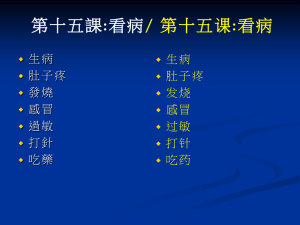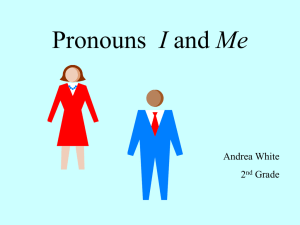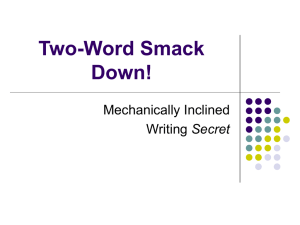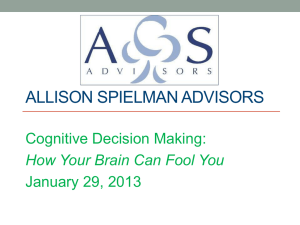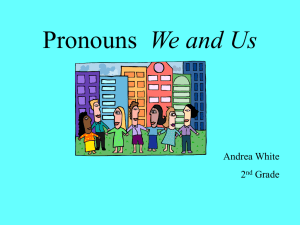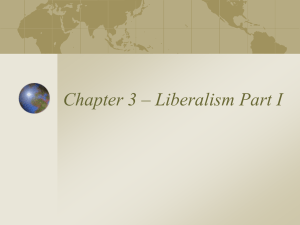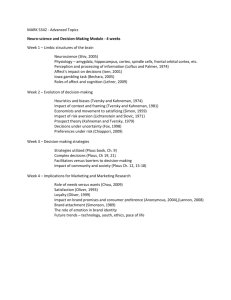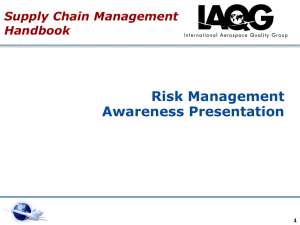Learning Outcomes Workshop PowerPoint
advertisement
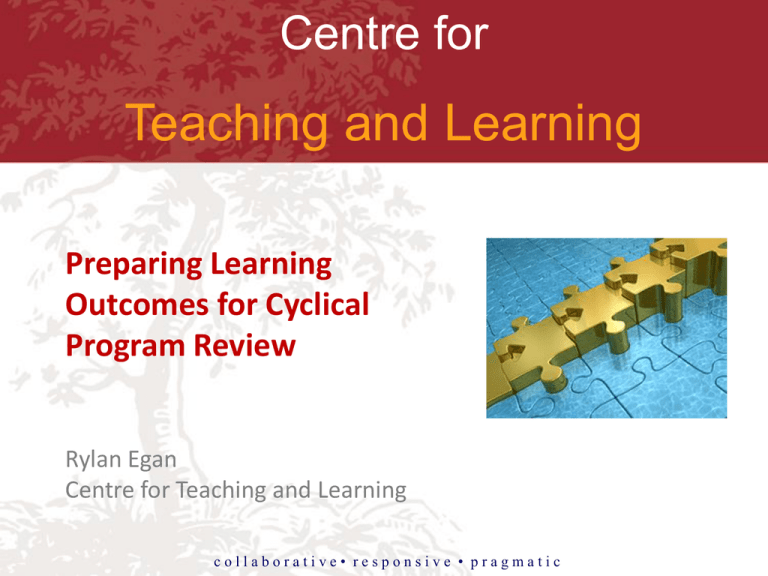
Centre for Teaching and Learning Preparing Learning Outcomes for Cyclical Program Review Rylan Egan Centre for Teaching and Learning collaborative• responsive • pragmatic Agenda • Overview the role of Learning Outcomes in curriculum mapping • Overview learning outcome development processes • Develop/consolidate program and/or course level outcomes Curriculum Mapping Constructive Alignment - Program Program Learning Outcomes CPR Courses Learning Outcomes (Biggs, 2010) Constructive Alignment - Course Course Learning Outcomes Student Assessment Instruction (Class/Lab/Placement) (Biggs, 2010) Curriculum Map Course Outcomes Entry Competency Course 1 Outcome 2,3 Course 2 Outcome 4, 5 Course 2 Outcome 3,4 Course 4 Outcome 1,2 Course 3 Outcome 1,2 Course 4 Outcome 2,3 Course4 Outcome 2,3 Course 2 Outcome 1,2 Program Outcomes Outcome 1 Outcome 2 Outcome 3 Outcome 4 Self-Study Curriculum Template Learning Outcome Structure Writing An Outcome Step 1. Choose a verb that describes the level of learning you intend. Step 2. State the content the student will be considering. Step 3. State what the student will be able to do as a result. Do What, With What, For What Program Level Students will… Do What With What For What Interpret art works to establish a perspective on the subject matter and the meaning of their imagery (iconography). apply probability tests to establish the likelihood of events occurring in the natural world. Course Level Students will… Do What With What For What compare and contrast 16th and 17th century Scandinavian sculptures to interpret the influence of changing cultural norms of the time. apply Baysian probability to draw valid conclusions from complex data sets. Granularity Province “Depth and Breadth of Knowledge” “Application of Knowledge” Institution “We help our students formulate problems or tasks, and they solve or execute them in their own way, individually, in teams…” Program Chemistry- Students will apply quantitative principles to effectively describe the nature of chemical reactions. Course Chemistry- Students will evaluate the nature of chemical reactions to determine secondary substances. Class Chemistry- Students will implement and analyze a Kastle-Meyer test to determine the presence of blood. General Specific Verb Choice Learners will identify and describe the philosophies of John Locke and Thomas Hobbes to contrast 17th Century thinking on civic governance. Connotes memory based learning and basic communication of ideas. Verb Choice Learners will evaluate and articulate the philosophies of John Locke and Thomas Hobbes to contrast 17th Century thinking on civic governance. Connotes deep learning and improving judgment and communication. Verb Choice Learners will identify with the philosophies of John Locke or Thomas Hobbes to contrast 17th Century thinking on civic governance. Connotes personal philosophical judgment and reflection. Handout Learning Outcome Tips Describe the outcome not the activity. Reconsider Students will write a paper on societal advantages of sustainability in regard to biological systems. Better Students will adopt a sustainability perspective to maintain future biological systems. Focus on students’ learning outcomes, not instruction. Reconsider Students will learn about Tversky and Kahneman’s theories of cognitive bias. Better Students will evaluate Tversky and Kahneman’s theories of cognitive bias to predict human decision making behaviours. Ensure verb choice accords with future assessment(s). Reconsider Better Create Multiple Choice Evaluate Critical Essay Avoid jargon. Reconsider Students will identify metacognitive cues to effectively self-regulate their learning. Better Students will identify academic challenges to improve their choice of study strategies. The role of outcomes across the institution Quality Council Degree Level Expectations Queen’s Program Course Academic Plan Program Learning Outcomes (CPR) Course Learning Outcomes Class Lesson Outcomes Outcome Development



